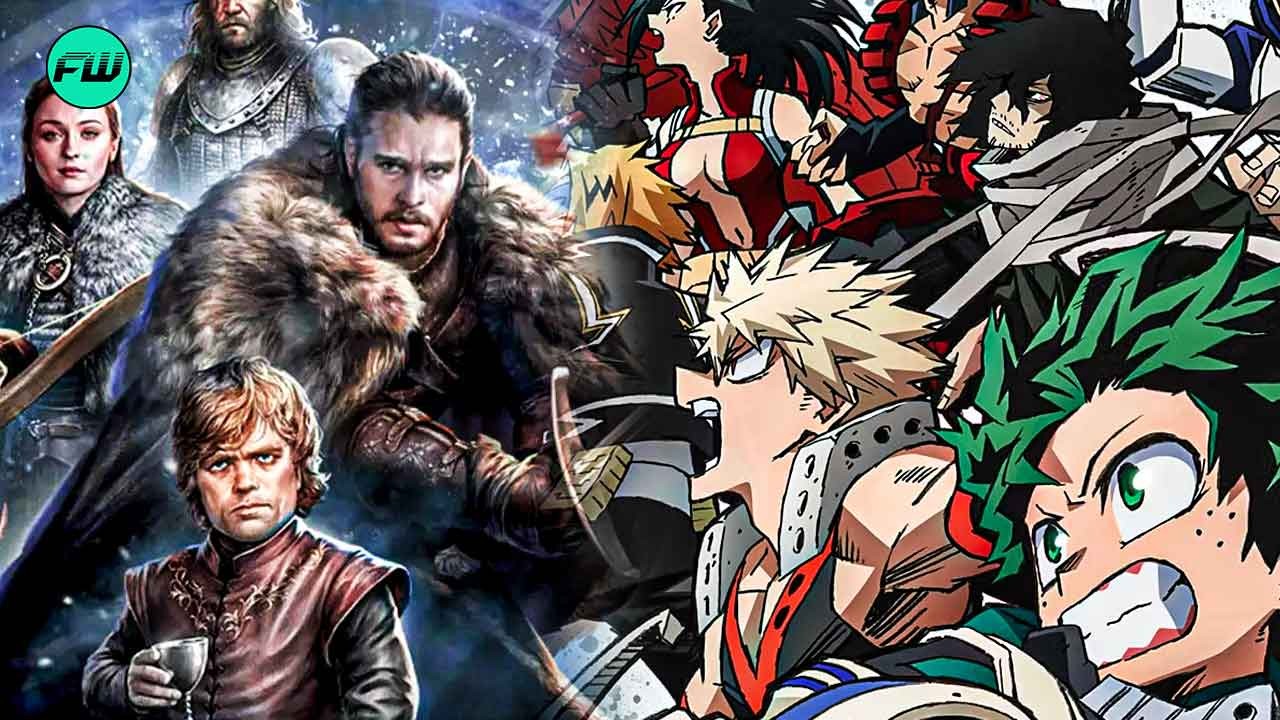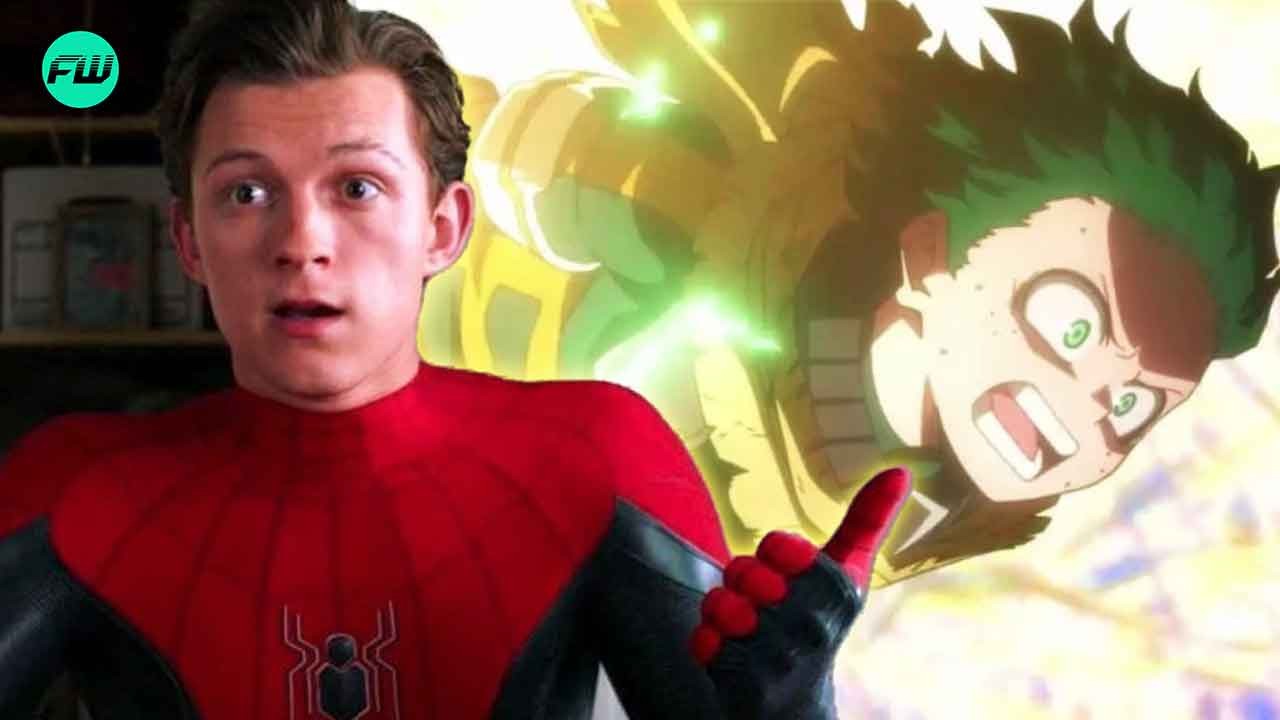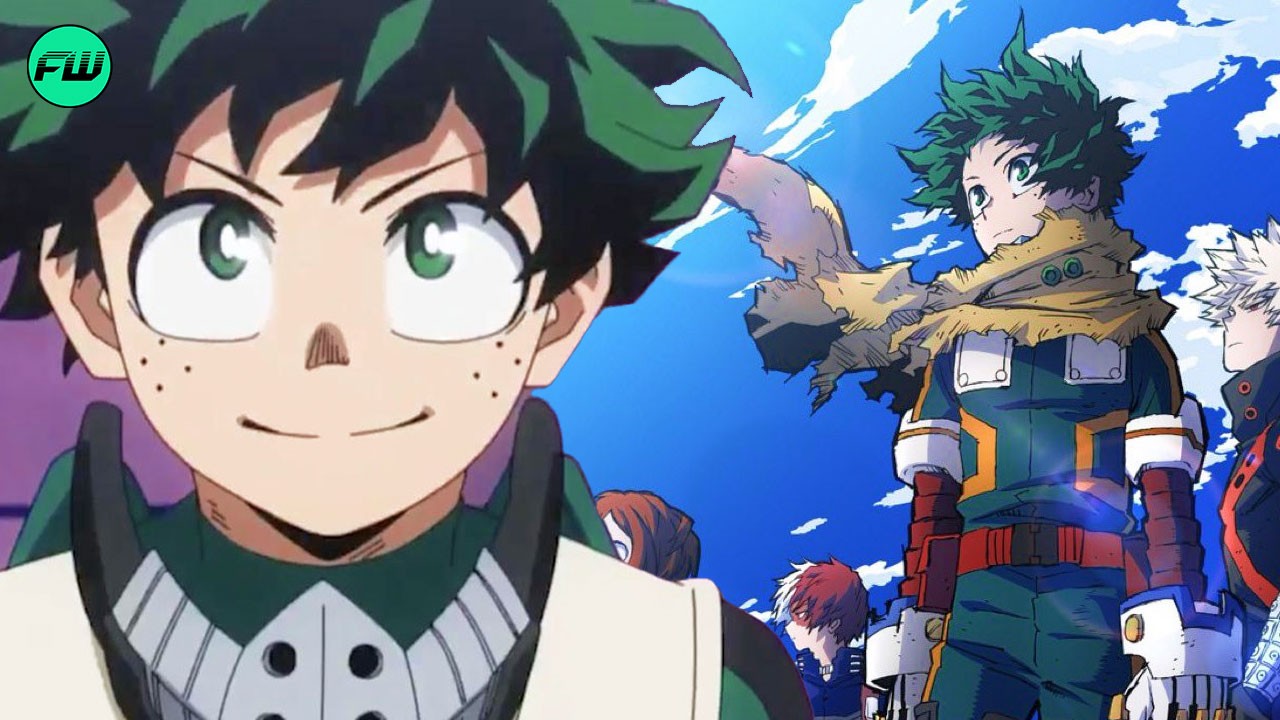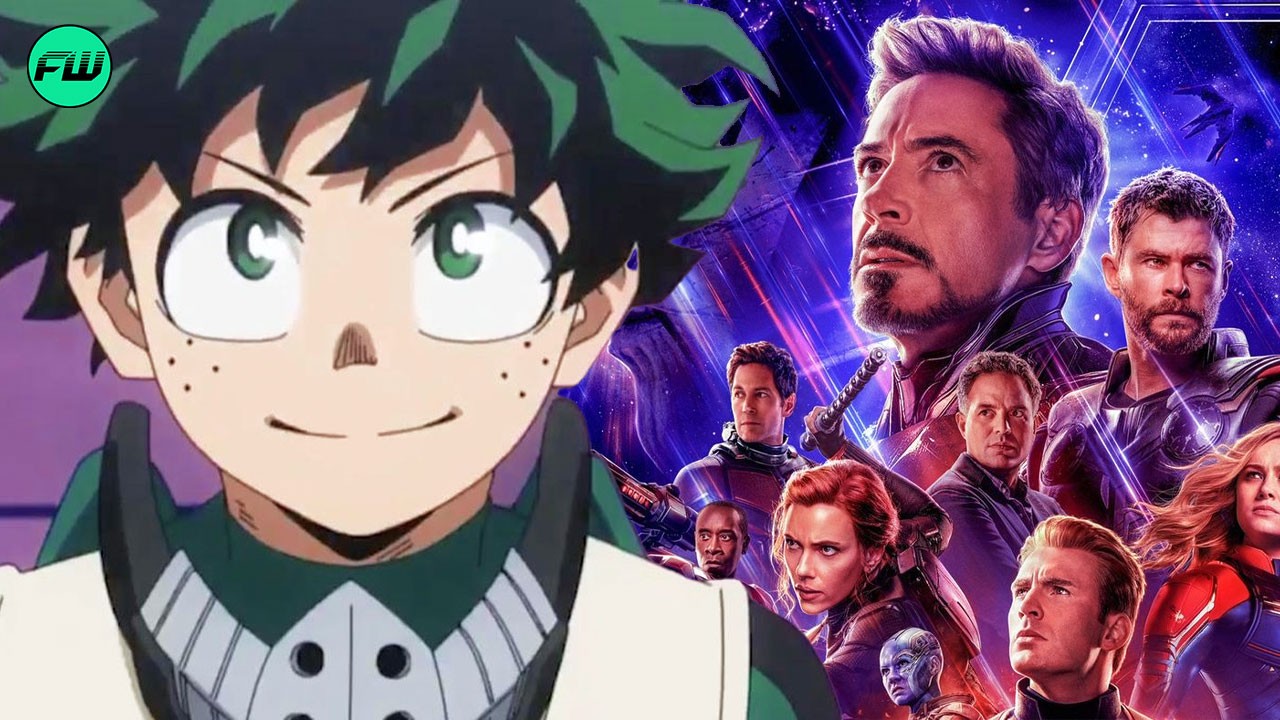As Kohei Horikoshi’s uber-popular Shōnen series, My Hero Academia, slowly inches toward a conclusion, fans hold their breath in anticipation of what’s to come. What could be intriguing for fans to know is that the manga artist is reportedly planning an “even better” finale, given that elements of his originally envisioned ending have been offered to us already.
Before you resort to ‘how’ or ‘where,’ we must jog your memory with respect to the second film in the franchise, My Hero Academia: Heroes Rising. Spoiler warning before we proceed!
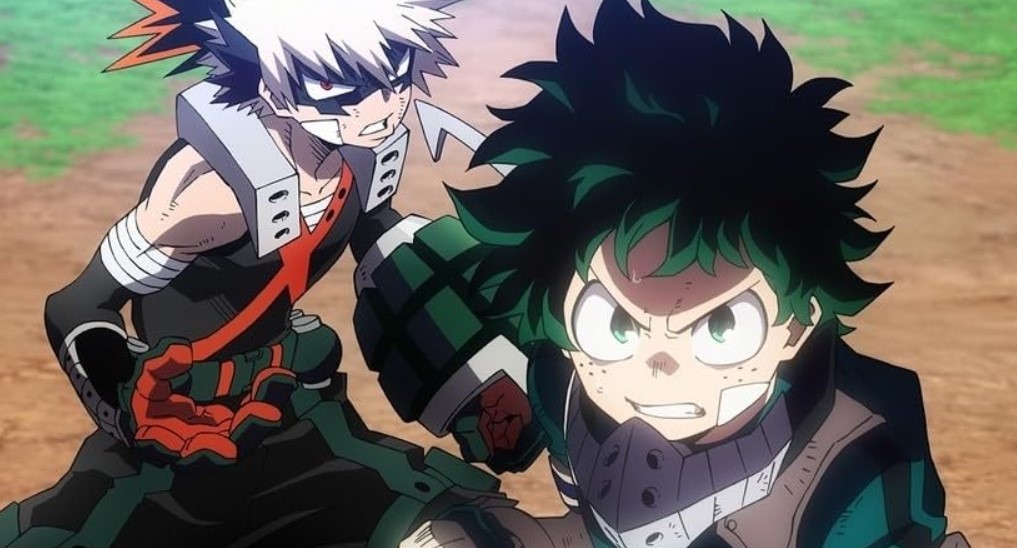
In the animated superhero film, Deku and Bakugo, along with the other U.A. students, stumble upon formidable adversaries at the remote Nabu Island. It’s a cool premise that crescendos into a memorable finale that couldn’t be more heartbreaking.
In the final encounter between our two primary heroes and the villain Nine, elements that could’ve comprised Horikoshi’s initial conclusion to the series become blatant. But don’t take our word for it when the director of the movie, Kenji Nagasaki, divulged the details in an old interview.
Kohei Horikoshi’s Original MHA Ending Was Used For Heroes Rising
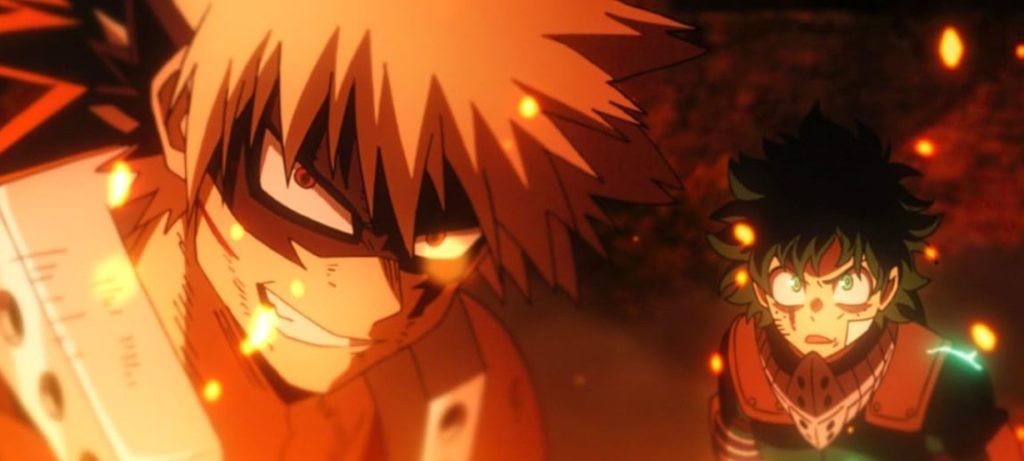
In an interview with Newtype, as translated by @aitaikimochi on X, Heroes Rising director Kenji Nagasaki revealed how elements that comprised the finale battle of Kohei Horikoshi‘s series were utilized in the second film with the manga artist’s permission.
While Nine gets separated from his gang, who get taken down one by one with the help of U.A. students, he can still outpower and debilitate the remaining young heroes.
In this dire situation, it’s up to our protagonist and deuteragonist, Deku and Bakugo, to tackle the seemingly omnipotent foe. This leads to a sequence where the two characters have exhausted all other options in destroying the villain and find themselves powerless against Nine.
Then, Midoriya does the unthinkable.
In a last-ditch effort, he extends his hand out to Bakugo—in a scene that may have evoked several gasps—and transfers One for All to his childhood friend-slash-rival. After all, two heads are better than one, right? While that’s fine and all, this exchange carries gravity.
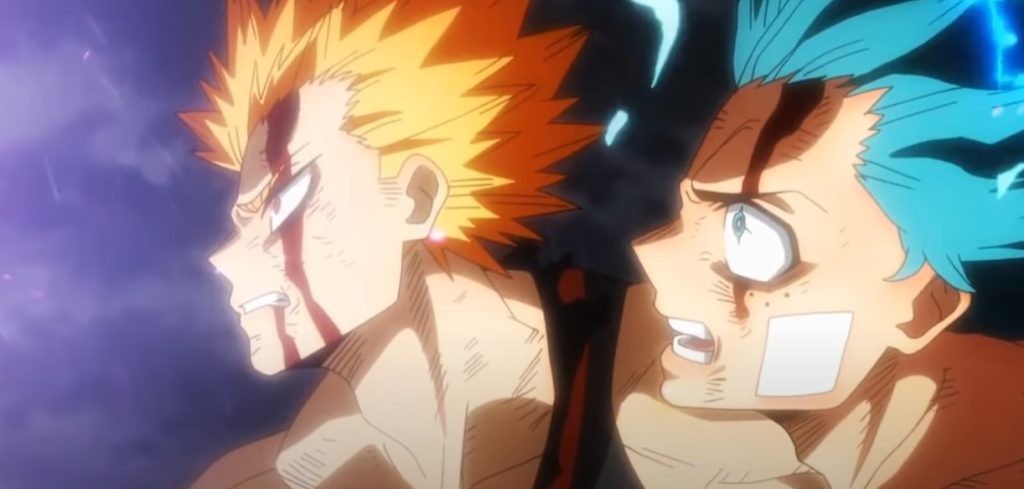
Given their shared history, and Midoriya’s knowledge that this could render him quirkless yet again, this becomes a sacrifice that tugs at our heartstrings and illustrates the kind of hero Deku is. His idea ultimately works. Deku and Bakugo’s combined One for All outrivals Nine.
Regarding MHA’s original ending, Kenji Nagasaki revealed the following in the interview:
“We did use an element that was originally planned in the manga’s last battle and used it towards the end of this movie. When we discussed the ending elements of the story, we asked Horikoshi-sensei, “Isn’t this element what you had originally planned to use in the manga?” However, Horikoshi-sensei gave us the green light to use it.”
Now, while it wasn’t specified which elements, in particular, were utilized from the MHA finale for Heroes Rising, it does make us wonder if Midoriya’s sacrifice would’ve signaled the series’ conclusion. If true, it’d have made for a tragic yet poetic end to both the characters’ arcs in the overarching storyline.
The Poetic Tragedy Of My Hero Academia‘s Original Ending
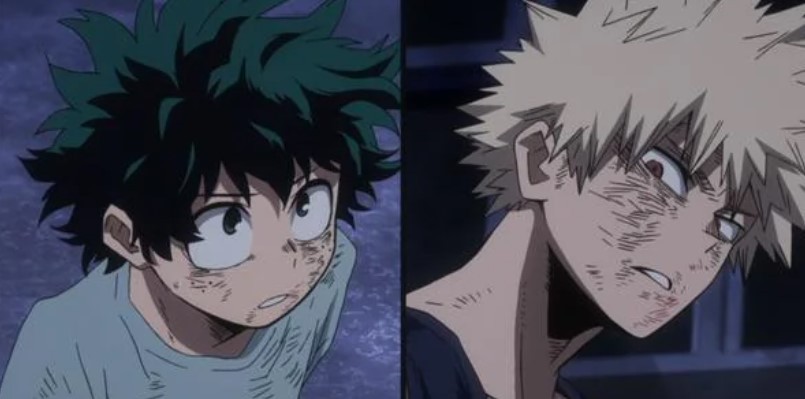
As Kenji Nagasaki confirmed, MHA‘s ‘final battle,’ as envisioned by Kohei Horikoshi, translated into the ending moments of the second film.
This statement implies that the relevant elements are Deku’s transfer of One for All, which turns into a significant sacrifice; his faith in Bakugo in entrusting his powers to him; Bakugo’s acceptance of said power, knowing full well his own wasn’t enough; and, of course, the brief existence of two simultaneous One for All wielders, each possessing the powers of their greatest hero, All Might.
If these were the creator’s intended components for the series’ finale, then it suggests one of the most sorrowful endings in manga/anime history—going beyond what’s presented on prestige television. Not only does Deku voluntarily give up on his lifelong dream but he also does it to save rather than win.
By letting go of what he holds dear, he becomes the ultimate hero. But it’s not just that, it’s how the sequence in the movie also culminates into what the overarching storyline sets up for Bakugo and Deku’s convoluted relationship. In that moment of helplessness, the deuteragonist is unconditionally freed from his ego.
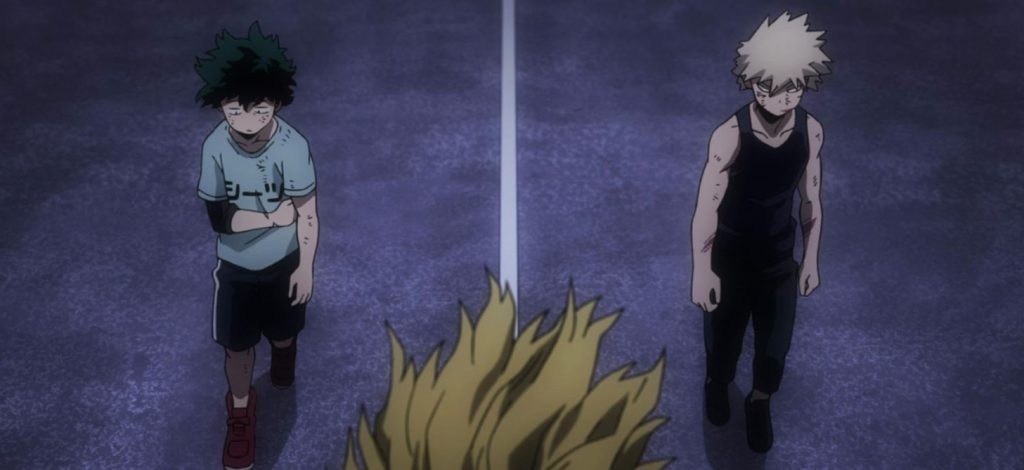
His decision to accept One for All demonstrates how far he has come in his journey. In the past, he would never have done so. He wouldn’t have even entertained the idea of working alongside Deku. But his experiences have shaped him throughout the story, and, in this moment, he realizes that only together can they save the world.
This conclusion would have beautifully wrapped the arcs of the two characters. Only through embodying the sentiment of ‘win to save, save to win’ could they become the heroes they were destined to be.
But the reality of Deku being rendered quirkless, although poetic in its coming a full circle, would’ve been a bit too grim. Perhaps that’s why it was used in the film, of course, with a reset that saw Midoriya’s powers never leave and Bakugo losing all memories of the transfer.
One could only wonder what else Horikoshi has in store that is ‘even better’ than this. Such questions shall soon be answered.
For now, you can anticipate the release of My Hero Academia Season 7, which will premiere on May 4, 2024. You can also stream My Hero Academia: Heroes Rising on Netflix.

